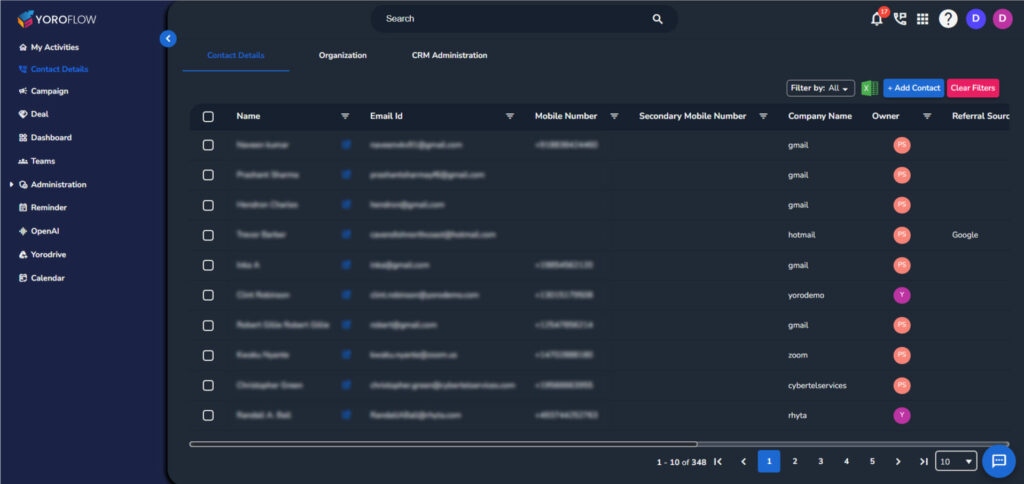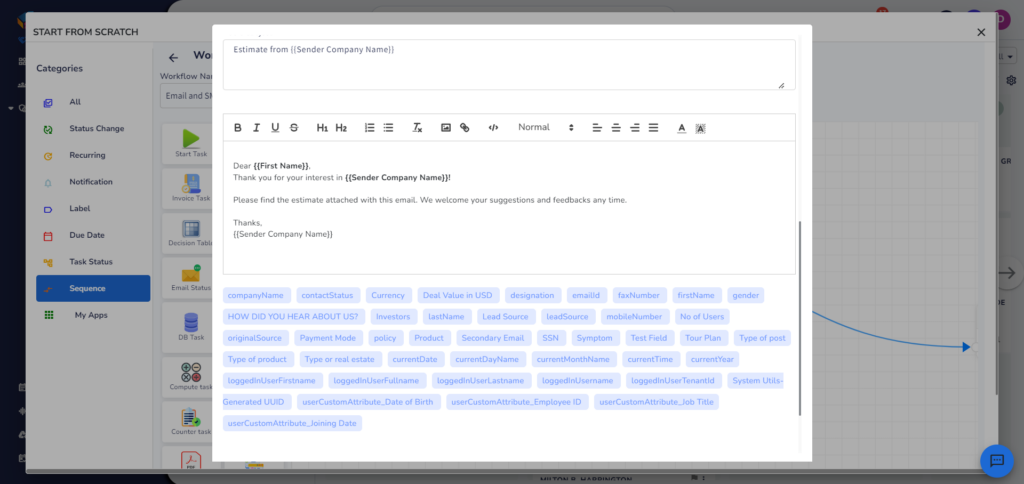Table of Contents
In today’s ever-evolving business landscape, the implementation of a robust Customer Relationship Management (CRM) strategy is a critical imperative. Tailoring CRM approaches to suit the diverse needs of businesses, regardless of size, is essential for unlocking the full potential of CRM software. This article explores the nuanced intricacies involved in formulating effective CRM strategies that resonate with the distinctive requirements of businesses across different dimensions.
In the dynamic world of commerce, a one-size-fits-all CRM strategy is no longer sufficient. Recognizing the unique demands posed by varying business sizes, this article navigates through the essentials of customizing CRM solutions. Whether steering a small business toward personalized customer interactions or optimizing the efficiency of complex sales pipelines for larger enterprises, the tailored implementation of CRM tools proves indispensable. From contact management and sales automation to marketing and customer service, aligning CRM strategies with business size ensures that organizations can not only survive but thrive in today’s competitive market, fostering lasting relationships and achieving sustainable growth.
Understanding CRM Strategy
A CRM strategy serves as the cornerstone of efficient customer relationship management by integrating specialized CRM software. This software acts as a central hub, facilitating the seamless management of customer interactions, process optimization, and overall enhancement of business efficiency. At the heart of this strategy lies a comprehensive suite of tools designed to address various facets of customer relations.
The first critical element is contact management, enabling businesses to organize and personalize interactions with clients effectively.

Sales tracking follows closely, allowing for the monitoring and analysis of sales activities, essential for informed decision-making. Marketing automation tools come into play, automating repetitive marketing tasks and ensuring a targeted and efficient outreach.
Moreover, customer service functionalities are integrated to streamline issue resolution and enhance overall customer support. Together, these components form a cohesive approach to customer relationship management, ensuring businesses can adapt and respond to the ever-changing dynamics of their customer base. In essence, a well-crafted CRM strategy, powered by sophisticated software, is indispensable for organizations seeking to thrive in today’s competitive landscape by fostering meaningful customer relationships and operational excellence.
Tailoring Strategies to Business Size
Contact Management: For small businesses, focusing on personalized interactions is key. CRM software facilitates efficient contact management, enabling personalized communication that builds stronger relationships.
In contrast, large enterprises benefit from advanced contact management features that handle a vast network of clients and partners seamlessly.
Sales Tracking and Automation
Small businesses often prioritize cost-effective solutions that automate essential sales tasks. Implementing sales automation tools ensures that limited resources are utilized optimally.
On the other hand, larger enterprises may leverage sophisticated sales tracking and automation to manage complex sales pipelines, monitor performance, and forecast trends.
Marketing Automation Tools
For businesses of all sizes, marketing automation is a game-changer. From email marketing to workflow automation, CRM software enhances efficiency. Small businesses can utilize these tools to establish a solid online presence, while larger enterprises can automate complex marketing campaigns across diverse channels.
Customer Service Excellence
Regardless of size, delivering exceptional customer service is non-negotiable. CRM strategies must integrate tools for effective issue resolution and customer support. Small businesses can excel by providing personalized assistance, while larger enterprises require scalable solutions to meet the demands of a broad customer base.

Sales Automation and Workflow Automation
Small businesses benefit from the automation of repetitive tasks, allowing sales teams to focus on building relationships. In contrast, larger enterprises leverage workflow automation to optimize complex business processes, ensuring seamless collaboration across departments.
Customer Journey Mapping
Understanding the customer journey is crucial for both small and large businesses. CRM strategies should incorporate tools for mapping the customer journey, enabling businesses to identify touchpoints, personalize interactions, and enhance overall customer satisfaction.
Lead Scoring
Implementing lead-scoring mechanisms is vital for businesses seeking to prioritize and convert potential customers. Small businesses may focus on basic lead scoring, while larger enterprises employ advanced algorithms to evaluate and prioritize leads at scale.
Email Marketing
Email marketing stands as a potent asset for businesses, irrespective of size. In the realm of CRM strategies, integrating robust email marketing features is imperative. These features empower businesses to personalize communications, fostering stronger connections with clients. Furthermore, they play a pivotal role in lead nurturing, ensuring a strategic approach to converting potential customers. By leveraging email marketing within CRM strategies, businesses can effectively engage their audience, cultivate relationships, and drive meaningful conversions, thereby maximizing the impact of their marketing efforts.

Enhancing Customer Experience
A thriving CRM strategy is designed to enhance the overall customer experience. Small businesses prioritize forging intimate connections and tailoring interactions to individual needs. In contrast, larger enterprises employ comprehensive approaches, striving for consistency across diverse touchpoints. Whether fostering personal relationships or managing extensive networks, the common goal is to create a seamless and gratifying customer journey. The effectiveness of a CRM strategy lies in its ability to adapt to the unique dynamics of business size, ensuring that every customer interaction contributes to a positive and enduring relationship with the brand.
Conclusion
The era of a standardized CRM strategy has faded into obsolescence as businesses acknowledge the imperative to tailor their approaches based on size and industry intricacies. Recognizing the distinct demands of their operations, companies are steering away from a one-size-fits-all model. Customizing CRM strategies to specific needs enables businesses to unlock the comprehensive capabilities of CRM software like YoroCRM, strategically leveraging it to propel growth, cultivate unwavering customer loyalty, and gain a competitive edge in the contemporary business arena.
The ability to adapt CRM tools to unique business dimensions becomes a linchpin for success. Small businesses find value in personalized interactions and cost-effective sales automation, optimizing limited resources. Meanwhile, larger enterprises leverage sophisticated CRM functionalities to manage expansive networks and intricate sales pipelines. This nuanced alignment with industry-specific demands empowers businesses to navigate the intricacies of customer journey mapping, lead scoring, and email marketing effectively. Ultimately, by embracing a tailored CRM strategy, businesses position themselves at the forefront of innovation, ensuring sustained relevance and resilience in the ever-evolving landscape of modern commerce.




